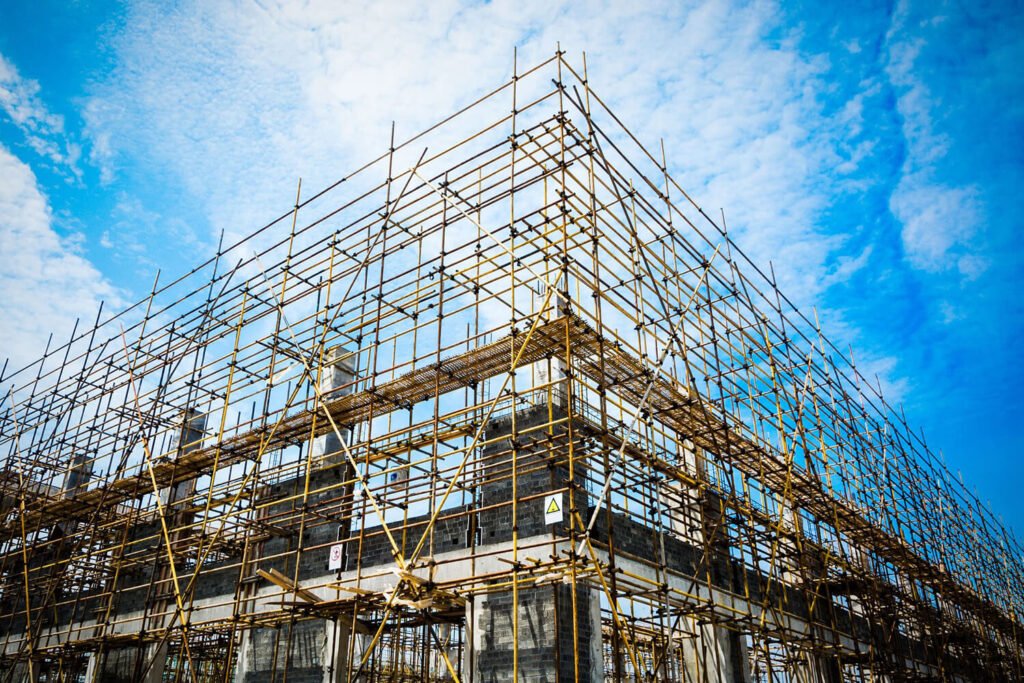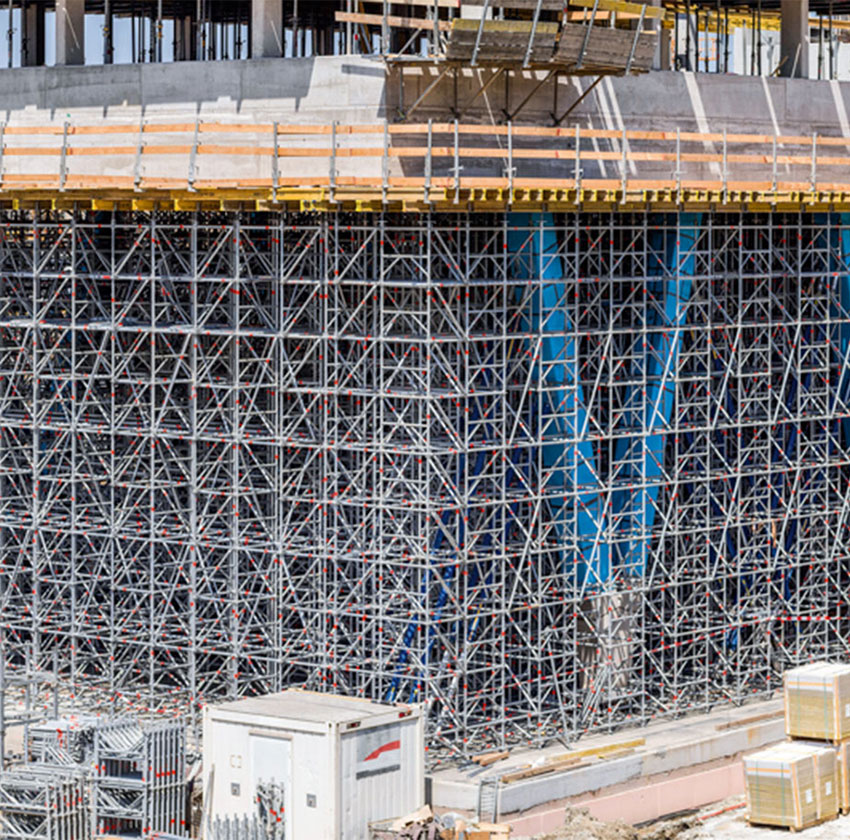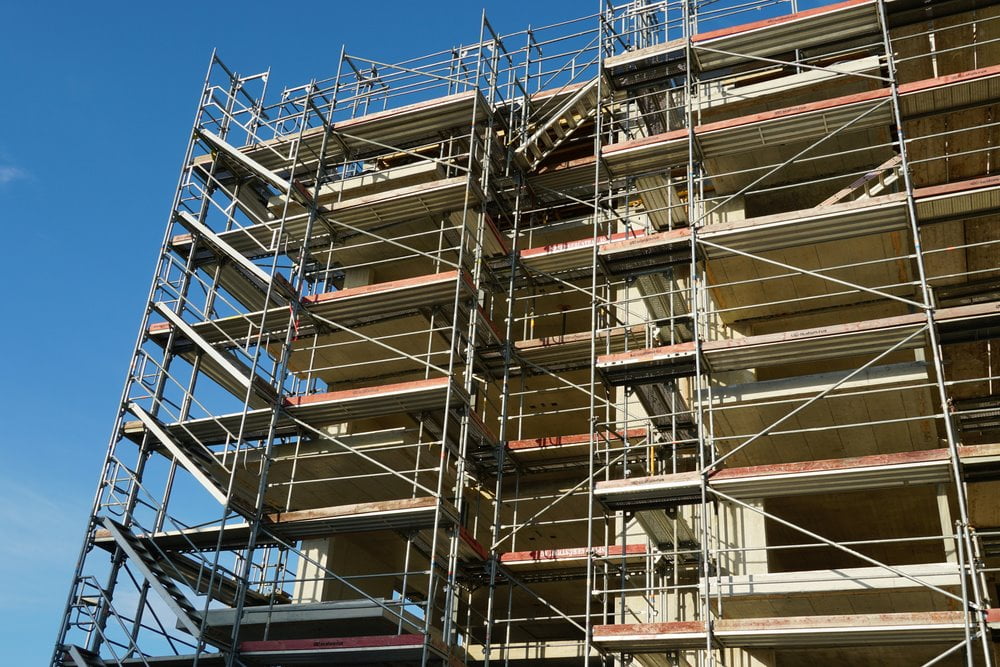Get the Best Scaffolding Cobham Services for Your Building Projects
Get the Best Scaffolding Cobham Services for Your Building Projects
Blog Article
Checking Out the Various Kinds Of Scaffolding Used in Construction Tasks
The building and construction industry counts greatly on various sorts of scaffolding to meet details task demands, each offering unique benefits and applications. Conventional framework scaffolding provides a tough structure for general jobs, while suspended scaffolding is essential for work on skyscraper frameworks. Various other choices, such as system and rolling scaffolding, provide to effectiveness and flexibility, specifically. Furthermore, the cantilever variant proves very useful in city atmospheres where area is constricted. Understanding the subtleties of these scaffolding kinds is important for maximizing security and performance on construction sites, triggering a better exam of their one-of-a-kind features and applications.

Conventional Frame Scaffolding
Traditional framework scaffolding is just one of one of the most commonly utilized techniques in the building market as a result of its effectiveness and adaptability. This system includes vertical and straight frames that are constructed to develop a stable system for workers and products. The primary parts include upright blog posts, horizontal ledgers, and angled dental braces, which together supply a strong structure that can support substantial lots.
Among the crucial benefits of conventional frame scaffolding is its versatility to various building tasks, ranging from household structures to large commercial structures. The modular layout enables very easy setting up and disassembly, making it effective for both long-lasting and temporary projects. In addition, the system can be customized in elevation and width, accommodating various building styles and website problems.
Security is critical in scaffolding applications, and typical frame systems are geared up with guardrails and toe boards to stop falls and guarantee employee defense. Routine evaluations and adherence to security regulations are critical in preserving the stability of the scaffold (Scaffolding). Overall, typical framework scaffolding stays an essential choice in the building and construction market, providing a trustworthy platform for labor and boosting overall task performance

Suspended Scaffolding
Suspended scaffolding uses a distinct solution for building tasks that need access to raised surface areas, specifically in situations where typical frame scaffolding might be unwise. This type of scaffolding is generally suspended from the roof covering or upper levels of a structure, making use of a system of systems, sheaves, and ropes to develop a functioning space that can be gotten used to various heights.
Among the main advantages of suspended scaffolding is its adaptability. It can be conveniently repositioned or reduced to suit changes in building needs, making it suitable for jobs such as home window installment, frontage job, and maintenance on high-rise buildings. In addition, the very little impact of put on hold scaffolding permits better use ground area in metropolitan settings, where room is often restricted.
Safety is an important consideration in making use of put on hold scaffolding. Appropriate rigging and anchoring systems should be employed to guarantee security and avoid accidents. Operators needs to additionally be learnt the safe use of this tools. Generally, put on hold scaffolding provides a efficient and efficient remedy for accessing hard-to-reach locations in numerous construction circumstances, improving both efficiency and safety on site.
System Scaffolding
System scaffolding, commonly considered a contemporary service in the scaffolding sector, is composed of pre-engineered components that can be promptly put together look at this website and adjusted for various construction jobs. Scaffolding. This sort of scaffolding is defined by its modular design, which enables adaptability and performance on job sites, accommodating different elevations and structural requirements
Usually made from high-strength steel or light weight aluminum, system scaffolding provides enhanced durability and security. The parts consist of vertical articles, horizontal ledgers, and diagonal braces, which interconnect firmly, guaranteeing a robust framework. This Site The layout usually includes standardized fittings, simplifying assembly and disassembly processes, therefore reducing labor time and expenses.

Rolling Scaffolding
Moving scaffolding is a functional option to traditional fixed scaffolding, developed for movement and convenience of use on building and construction sites. This kind of scaffolding contains a platform sustained by structures with wheels, allowing workers to easily relocate it as required. The wheelchair function dramatically improves performance, as it lessens downtime related to taking apart and constructing taken care of scaffolding.
Usually constructed from lightweight materials such as aluminum or steel, rolling scaffolding provides a tough yet portable solution for tasks calling for constant repositioning - Scaffolding. It is specifically advantageous in tasks such as paint, drywall installation, and electrical work, where accessibility to numerous heights and locations is required
Security is critical in rolling scaffolding design, with functions such as securing wheels to avoid unplanned motion when in operation, and guardrails to safeguard employees from falls. Furthermore, lots of models are adjustable in height, suiting different project demands.
Cantilever Scaffolding

The design scaffolding tools of cantilever scaffolding commonly entails making use of braces or arms anchored to a structure or framework, allowing the system to extend outward safely. Safety is extremely important; hence, these scaffolds should be engineered to endure various lots and ecological problems. Routine inspection and upkeep are important to guarantee structural stability and worker safety and security.
Cantilever scaffolding is preferred for its versatility and effective use room, making it a preferred option in city atmospheres where area restrictions are usual. Furthermore, it helps with simpler accessibility to high altitudes, inevitably adding to the overall effectiveness of building tasks. Similar to all scaffolding types, correct training and adherence to security standards are critical for employees making use of cantilever scaffolding.
Verdict
Traditional framework scaffolding supplies security, while put on hold scaffolding uses convenience for raised tasks. System scaffolding assists in fast setting up, and rolling scaffolding improves wheelchair for differing work environments.
Typical structure scaffolding offers a strong structure for basic tasks, while put on hold scaffolding is necessary for job on skyscraper frameworks.Moving scaffolding is a flexible option to conventional fixed scaffolding, designed for wheelchair and convenience of use on building websites. As with all scaffolding kinds, correct training and adherence to security criteria are important for employees making use of cantilever scaffolding.
Traditional framework scaffolding supplies security, while suspended scaffolding offers adaptability for elevated jobs. System scaffolding facilitates fast assembly, and rolling scaffolding enhances movement for differing job atmospheres.
Report this page